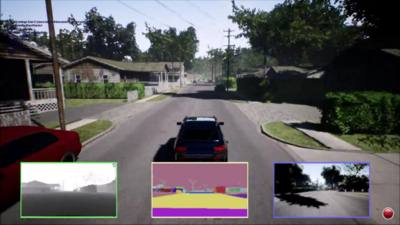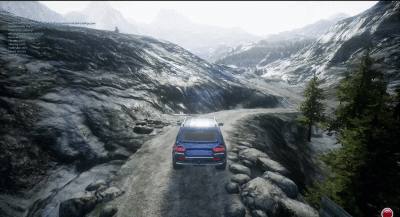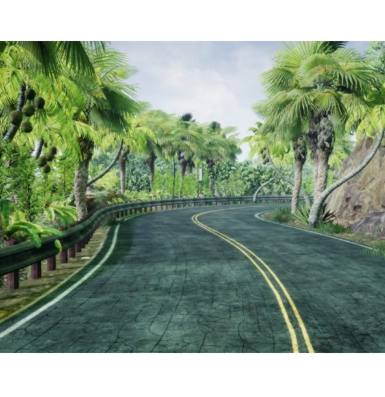| Autonomous Driving Resource Open Sourced by Microsoft Garage |
| Written by Harry Fairhead | |||
| Tuesday, 06 March 2018 | |||
|
Self-driving cars are arriving much faster than we ever expected. So rather than requiring the Haynes Manual for your next vehicle will you be referring to the Autonomous Driving Cookbook? In his post on the Microsoft Open Source blog, Aditya Sharma writes: Autonomous driving has transcended far beyond being a crazy moonshot idea over the last half decade or so. It has quickly become one of the biggest technologies today that promises to shape our tomorrow, not very unlike when cars first came into existence. Sharma leads the Deep Learning & Robotics chapter of Microsoft Garage and is also Program Manager for AirSim, an open source, cross platform simulator for drones, cars and more built on Unreal Engine.
AirSim was recently expanded to include cars for autonomous driving research and this has led to the Autonomous Driving Cookbook, a collection of scenarios, tutorials, and demos to help you quickly onboard various aspects of the autonomous driving pipeline, being open sourced. Sharma write: By making this cookbook available to everyone, we hope to make the barrier of entry to autonomous driving simulation as low as possible. The cookbook is now available in preview on GitHub as we continue to work hard to add more scenarios and tutorials in the future. Tutorials in the cookbook are presented as Jupyter notebooks and wherever needed, tutorials come with their own datasets, helper scripts and binaries. They use popular open source tools (like Keras, TensorFlow, etc.), as well as Microsoft open source and commercial technology (like AirSim, Azure virtual machines, Batch AI, CNTK, etc.), but the primary focus is on the content and learning, enabling users to take what they learn here and apply it to their work using tools of their choice. Sharma comments on there being resources at different levels: We aim to make the cookbook a valuable resource for anyone working in autonomous driving, be it research or industry, beginners or experts. For people who are just starting out, we have a tutorial on End-to-End Deep Learning for Autonomous Driving, which serves as a great introduction to the fundamentals of steering models, end-to-end deep learning techniques, and the AirSim simulation platform. For those looking to create scalable models on the cloud, we have a tutorial on Distributed Reinforcement Learning which uses Azure Batch to spin up virtual machines to run training on multiple instances of the simulator simultaneously. We will also be soon releasing a tutorial on Lane Detection using Deep Learning where instead of using popular computer vision-based techniques, which are inherently dependent on camera and image properties, we take data collected from simulations and use techniques like transfer learning to train deep learning models using very little real-world data. The lane detection tutorial uses a new new simulation environment, a condensed 1-mile version of the Hana Highway in Maui. In reality this is 64.4 miles long and goes through lush tropical rainforests, ocean front and grassy mountains with many waterfalls, beaches, tunnels and bridges along the way. Considered to be the perfect backdrop for training autonomous driving algorithms, this simulated environment is available to use in the binaries included with the cookbook and will also be made available on the main AirSim repository soon. Sharma concludes his blog post with: A big motivation behind the Autonomous Driving Cookbook for us is to promote this spirit of collaboration and so, we welcome other experts in the area to contribute tutorials to the cookbook to make it a go-to resource for people who wish to enter and grow in this exciting field.
More InformationNow on GitHub: The Autonomous Driving Cookbook from Microsoft Microsoft/AutonomousDrivingCookbook on GitHub Related ArticlesUdacity's Self-Driving Car Engineer Nanodegree MIT Self-Driving Car - Free Course
To be informed about new articles on I Programmer, sign up for our weekly newsletter, subscribe to the RSS feed and follow us on Twitter, Facebook or Linkedin.
Comments
or email your comment to: comments@i-programmer.info |
|||
| Last Updated ( Wednesday, 07 March 2018 ) |




